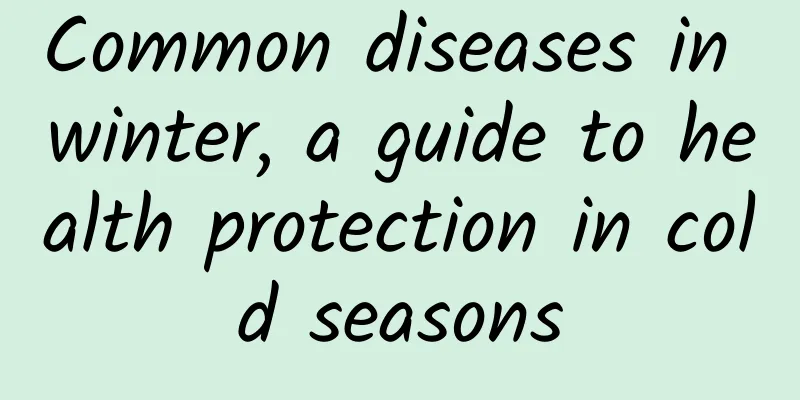What causes vulvar eczema? Know the cause and learn to prevent it

|
If vulvar eczema occurs, it means that there is a problem with the health of the genitals. There are many causes of this disease, such as mental factors, external stimulation, or allergic factors, etc., so you must learn preventive measures. 1. Mental factors are the cause of vulvar eczema For example, mental stress, excessive fatigue, and depression can cause neuroendocrine dysfunction, which in turn increase the skin's susceptibility to various stimuli through neural reflexes or endocrine influences, thereby inducing eczema. 2. Local irritation is the cause of vulvar eczema Increased vaginal discharge, scratching, and urinary fistula can also trigger the occurrence of eczema. 3. External allergens are the cause of vulvar eczema External allergens generally refer to cosmetics containing chemicals, dyes, radiation, some abnormal proteins, some pollen, or dust in the air. All of these factors can cause vulvar eczema in women. 4. Allergens in the body are the cause of vulvar eczema Such as lesions in the body, intestinal parasites, certain metabolic products, digestive tract diseases, and autoantigens produced by human tissues under the influence of certain factors. Symptoms of vulvar eczema: Vulvar eczema is a relatively serious skin disease among eczemas, and severe itching symptoms often occur when the disease occurs. 1. Acute phase Erythema, edema, papules, and blisters gather in groups. Blisters may fuse, rupture, erode, exude, and form crusts. The lesions are often symmetrically distributed, relatively localized and recurrent. 2. Subacute phase Erosion and exudation decrease, and scabs and desquamation appear. 3. Chronic stage After the acute stage, the inflammatory response becomes milder, manifested as skin thickening, cracking, desquamation, and accompanied by pigmentation or hypopigmentation. Systemic treatments for vulvar eczema: Treat the cause, keep the vulva clean, avoid scratching, get enough rest, and avoid eating foods that are prone to allergies. Antihistamines and other drugs can be taken orally. Oral antihistamines and other medications (1) Antihistamines and other drugs Diphenhydramine 25 mg, 3 times/d, orally. Chlorpheniramine (chlorpheniramine) 8 mg, 3 times/d, orally. For severe itching, 10 ml of 5% calcium bromide can be injected intravenously. Or intravenous injection of 10% calcium gluconate 10 ml, once a day. (2) Vitamins Large amounts of vitamin C can be given intravenously or orally, and B vitamins can be taken orally in conjunction with treatment. (3) Hormones Can be used for acute severe eczema. Prednisone, dexamethasone and other treatments can be given, which have a certain effect on eliminating inflammation, relieving itching and reducing exudate. Due to the high number of adverse reactions, care should be taken to control its use. It should not be used for chronic eczema in the elderly because it may relapse quickly after discontinuation of the drug and cause other adverse reactions. |
<<: Do you know these methods to prevent gynecological inflammation?
>>: How to choose a bra? Ladies, please take note!
Recommend
What are the food taboos for vaginitis
The problem of vaginitis is a type of female gyne...
What is the difference between a frog and a toad? Are frogs beneficial insects?
Frogs are beneficial insects, belonging to the ph...
What are the symptoms of threatened miscarriage in early pregnancy?
After becoming pregnant, women pay attention to m...
How long does it take for hyperthyroidism during pregnancy to disappear?
After a woman becomes pregnant, her body's ho...
Can I drink mutton soup after miscarriage?
After an abortion, in order to restore the body t...
Anesthesia for outpatient surgery: Master all the knowledge about anesthesia to give you peace of mind!
Outpatient surgery is currently widely performed ...
What is the reason for scanty menstruation, abdominal pain, and back pain?
Small menstrual flow, abdominal pain and back pai...
"Nutrition Knowledge" Series: Eating 80 grams of oats a day can help regulate blood lipids, mainly due to β-glucan
"Numerous studies have shown that the dietar...
Treatment of female genital itching
In today's society, women will inevitably enc...
Is it easy to cure cervical erosion of degree 3?
Is cervical erosion of degree 3 easy to treat? Pa...
How many days during the normal ovulation period is it easy to get pregnant
Everyone knows that if a woman has sex during her...
What to do if you have urethral pain in women
Urethritis is a common disease. It has many harmf...
Can girls still grow taller after menarche? You will know after reading this article!
Many mothers are anxious when they find their bab...
Will there be bleeding during intercourse with an ectopic pregnancy?
Ectopic pregnancy can be said to be a very seriou...









